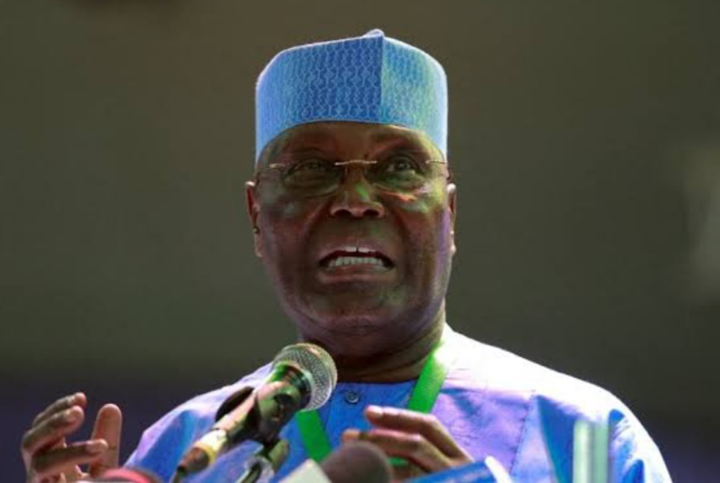The presidential candidate of the Peoples Democratic Party (PDP) in the 2023 election, Atiku Abubakar, has criticised the 2025 budget proposal, describing it as lacking the structural and fiscal discipline needed to address Nigeria’s economic challenges.
Atiku made this statement on Sunday while reacting to the N49.7 trillion budget presented by President Bola Ahmed Tinubu to the National Assembly last week.
The budget is based on key economic assumptions, including a revenue target of N36.36 trillion, inflation reduction to 15.75%, an exchange rate of N1,500 per dollar, oil production at 2.06 million barrels per day, a crude oil price of $70 per barrel, and a N13.39 trillion budget deficit.

According to Atiku, the 2025 budget continues the “business-as-usual” fiscal practices that fail to impact citizens’ lives meaningfully or tackle the country’s deep-rooted economic challenges.
He particularly criticised the budget’s reliance on borrowing to fund the N13.39 trillion deficit, describing it as unsustainable.
Key Concerns Highlighted by Atiku:
- Poor Budget Execution
Atiku noted that the underperformance of the 2024 budget raises concerns about the execution of the 2025 budget. He stated that by Q3 of 2024, less than 35% of the allocated capital expenditure for Ministries, Departments, and Agencies (MDAs) had been disbursed, despite claims of 85% budget execution. - Disproportionate Debt Servicing
The former vice president pointed out that debt servicing, which accounts for N15.8 trillion (33% of total expenditure), is nearly equal to the planned capital expenditure of N16 trillion (34%). This, he said, surpasses spending on critical sectors such as defence (N4.91 trillion), infrastructure (N4.06 trillion), education (N3.52 trillion), and health (N2.4 trillion), crowding out essential investments. - High Recurrent Expenditure
Atiku criticised the allocation of over N14 trillion (30% of the budget) to recurrent expenditure, which includes running an oversized bureaucracy and supporting inefficient public enterprises. He called for concrete steps to curb wastage and enhance the efficiency of public spending. - Insufficient Capital Investment
Atiku described the allocation for capital spending, ranging between 25% and 34% of the budget, as inadequate to address Nigeria’s infrastructure deficit and stimulate growth. He noted that this amounts to an average capital allocation of approximately N80,000 (US$45) per capita, which he said is insufficient for a nation grappling with infrastructural underdevelopment. - Regressive Taxation Policies
He criticised the administration’s decision to increase the VAT rate from 7.5% to 10%, describing it as a regressive measure that will exacerbate the cost-of-living crisis and stifle economic growth.
Recommendations
Atiku urged the Tinubu administration to adopt more disciplined and growth-oriented fiscal policies to enhance the budget’s credibility.
He called for the reduction of inefficiencies in government operations, tackling contract inflation, and focusing on long-term fiscal sustainability rather than relying on borrowing and recurrent spending patterns.
“The 2025 budget lacks the structural reforms and fiscal discipline required to address Nigeria’s multifaceted economic challenges.
A shift toward a more disciplined and growth-oriented fiscal policy is essential for the nation’s economic recovery,” he said.
Support InfoStride News' Credible Journalism: Only credible journalism can guarantee a fair, accountable and transparent society, including democracy and government. It involves a lot of efforts and money. We need your support. Click here to Donate
